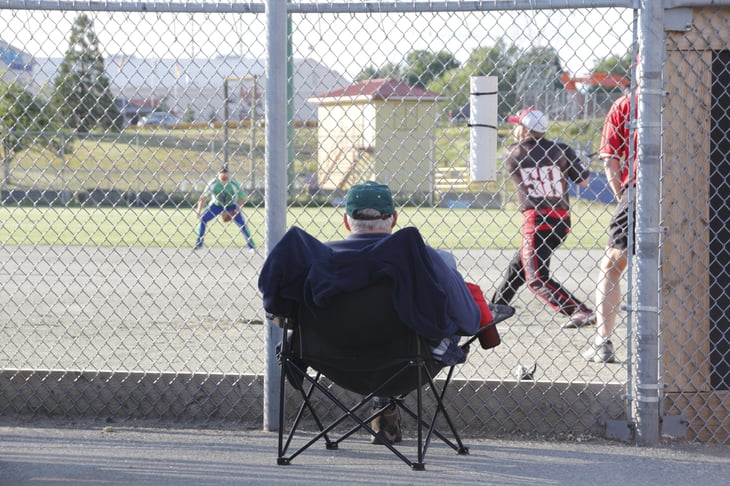
Books and websites are filled with lists and quizzes to help you choose a new location for retirement.
But when it comes to making your own decisions, things get personal. The wrong choice could tarnish your golden years.
If the following factors describe your city — or another place you want to move to — it might be the wrong place to retire.
1. It has no affordable housing

Housing is the biggest factor in most Americans’ budgets. Eliminate a mortgage payment or rent, and you can keep housing costs from changing while your income is fixed.
Moving to an area where housing prices and rents are high can put a serious strain on your retirement budget. Think twice before doing so.
2. Entertainment is scarce

“Best of” lists of places to retire typically focus on college towns with an abundance of cultural opportunities, including cheap and free concerts, plays, lectures and visual arts.
That’s great. But what if you care more about browsing flea markets? Or rooting for a major league sports team? Whatever is your thing, make sure your retirement community will deliver.
3. Nobody is hiring

Many Americans cycle into and out of retirement. Some retirees grow bored and want the stimulation they used to get from work. Others learn that their retirement income doesn’t stretch as far as they’d hoped.
You, too, may want to work again after being retired for a while. In addition, a town with plenty of living-wage jobs is a healthy, livable town with a strong economy — the best kind of place to live.
4. Excellent medical care is hard to find

It’s self-evident, but it’s worth saying: Older people consume more medical care. And they often require care from specialists and facilities specializing in orthopedics and geriatric care.
Find out whether your destination has what you need by talking with folks and calling providers.
5. You can’t remain close to family

Even if you don’t mind not seeing family members for extended periods of time, think about the fact that your children or loved ones may one day need to take an active role in your care — perhaps even becoming your caregivers.
Great distances make caregiving stressful and often agonizingly difficult for adult children who are also raising families and working.
6. Public transportation is lousy

Younger retirees don’t usually give a thought to the availability of transportation. They’re accustomed to hopping into cars and going where they wish, whenever the spirit moves them.
But that independence and freedom rarely lasts forever. If you intend to stay in a new community as you age, you may eventually want one where you can use buses, trains, light rail, cabs and ride-sharing companies.
So, long before you need it, assure yourself that your new town has plenty of ways to get around.
7. Senior housing options are limited

According to the Family Caregiver Alliance, 69% of people who are 65 and older will eventually develop disabilities and 35% will spend time in a nursing home.
A little basic research on the front end can help ensure that your prospective retirement community will have the housing options you need at a price you can afford.
8. Social life is nonexistent

Talk with people you meet to gather a sense of how friendly the community is. If you are looking for a faith community, investigate the congregations that might appeal to you and attend services at several to test the waters.
Ask yourself where and how you will make friends. Shop the grocery stores at a couple of different times of day and week to see if people are interacting or simply hurrying in and out. Try to pick up a sense of how warm and open to newcomers the town is.
Even those who are not social types may be unhappy in an atmosphere that is cold, exclusive or frenetic.
9. Cafes, restaurants and gathering places are subpar

Where do people gather in the community you are considering? Try to look at the place with the eyes of someone who has just moved there: Visit the coffee shops, senior center, parks and movie theaters.
If you speak a language other than English, is there a cultural center where you’ll feel at home?
10. Learning opportunities are tough to find

One of the joys of retirement is having the time to learn simply for the fun of it, so make sure you won’t be stuck in a learning desert. If you have dreamed of attending classes and lectures and picking up new skills or honing old ones, find out what’s available.
A quilter, for example, would look for a vibrant quilting or fabric store that’s a hub for workshops, classes and group activities. A busy arts center or art supply store opens the door to classes in painting, drawing, fiber arts and photography.
A visit to the website of the local community college and other schools will give a sense of the classes, clubs and weekend events offered to community members who are not pursuing a degree.
11. In-home care is unaffordable

If you plan on staying in the community for the rest of your life, it’s smart to look at resources you may need down the road. Ask real estate agents and others you meet about the availability of home health care aides. How many agencies are in town? Are their services highly recommended?
